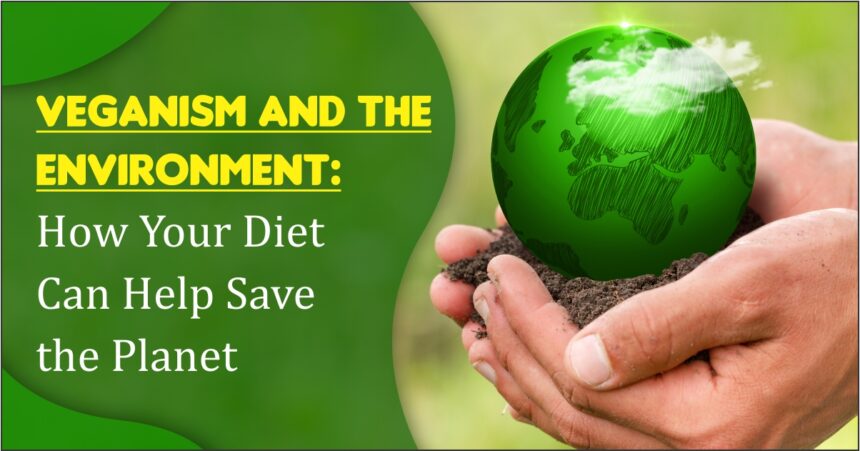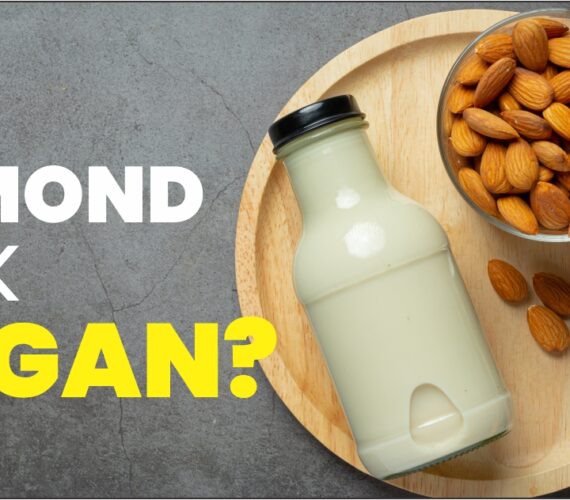Introduction
In recent years, there has been a growing awareness of the impact our choices have on the environment. One area where individuals can make a significant difference is in their diet. Veganism, a lifestyle that avoids the consumption of animal products, has gained popularity not only for its health benefits but also for its positive impact on the environment. In this article, we will explore the connection between veganism and the environment, highlighting how your diet can help save the planet.
The Environmental Impact of Animal Agriculture
Animal agriculture is one of the leading contributors to environmental degradation. The production of meat, dairy, and eggs requires vast amounts of resources and contributes to greenhouse gas emissions, deforestation, and water pollution. By understanding the various ways animal agriculture impacts the environment, we can begin to grasp the importance of adopting a plant-based diet.
Reducing Greenhouse Gas Emissions
Livestock farming is responsible for a significant portion of global greenhouse gas emissions. Methane and nitrous oxide, two potent greenhouse gases, are released during the digestive process of animals and from manure management. These gases trap heat in the atmosphere, contributing to climate change. By reducing or eliminating the consumption of animal products, individuals can significantly reduce their carbon footprint.
Preserving Water Resources
The production of animal products requires vast amounts of water. From animal hydration to crop irrigation for animal feed, water consumption is substantial. Additionally, animal waste pollutes water bodies, leading to water contamination. Choosing a vegan diet reduces the strain on water resources and helps preserve this precious commodity.
Mitigating Deforestation
Large-scale animal agriculture drives deforestation worldwide. Forests are cleared to create grazing pastures or to grow crops for animal feed. This destruction of natural habitats not only displaces wildlife but also contributes to the release of carbon dioxide into the atmosphere. By adopting a vegan diet, individuals can play a role in mitigating deforestation and protecting ecosystems.
Conserving Biodiversity
The loss of biodiversity is a significant concern globally. Animal agriculture is a leading cause of species extinction, as habitats are destroyed and ecosystems are disrupted. By choosing plant-based alternatives, we can support the conservation of biodiversity by reducing the demand for animal products and the associated destruction of natural habitats.
Sustainable Food Production
Veganism promotes sustainable food production methods. Plant-based diets require fewer resources, such as land, water, and energy, compared to animal-based diets. By shifting towards a vegan diet, we can contribute to a more sustainable food system that can support the growing global population without further depleting natural resources.
The Role of Plant-Based Diets
Plant-based diets, including veganism, offer a promising solution to environmental challenges. By focusing on fruits, vegetables, legumes, whole grains, and nuts, individuals can obtain all the necessary nutrients while minimizing their environmental impact. Plant-based diets are rich in fiber, vitamins, minerals, and antioxidants, which promote overall health and well-being.
Veganism and Climate Change
The connection between veganism and climate change is undeniable. The United Nations’ report from 2019 highlighted that transitioning to plant-based diets could significantly reduce greenhouse gas emissions and mitigate the effects of climate change. By choosing plant-based alternatives over animal products, individuals can contribute to a more sustainable and climate-resilient future.
Veganism and Water Conservation
Water scarcity is a pressing global issue. Adopting a vegan diet can alleviate the strain on water resources by reducing the water-intensive processes involved in animal agriculture. By shifting towards plant-based alternatives, individuals can make a positive impact on water conservation and contribute to a more sustainable water future.
Veganism and Forest Preservation
Forests play a vital role in maintaining a healthy environment. Veganism supports forest preservation by reducing the demand for animal products that contribute to deforestation. By making conscious choices in our diet, we can protect these valuable ecosystems and the countless species that depend on them.
Veganism and Wildlife Protection
The adoption of a vegan lifestyle directly contributes to wildlife protection. Animal agriculture is a leading cause of habitat destruction, pushing many species towards extinction. By embracing veganism, individuals can help preserve wildlife habitats, protect endangered species, and promote the coexistence of humans and wildlife.
The Health Benefits of a Vegan Diet
In addition to its environmental advantages, a vegan diet offers numerous health benefits. Plant-based diets are associated with a reduced risk of chronic diseases, including heart disease, type 2 diabetes, and certain types of cancer. By focusing on whole, unprocessed foods, vegans can enjoy a nutrient-rich diet that promotes optimal health and well-being.
Overcoming Challenges in Adopting a Vegan Lifestyle
Transitioning to a vegan lifestyle may present certain challenges. It is essential to be aware of potential nutrient deficiencies and ensure a balanced diet that meets nutritional needs. Educating oneself about plant-based nutrition and seeking guidance from healthcare professionals or registered dietitians can help overcome these challenges and ensure a successful transition to a vegan lifestyle.
Tips for Transitioning to a Vegan Diet
Here are some practical tips to make the transition to a vegan diet lifestyle easier:
- Start gradually by incorporating more plant-based meals into your diet.
- Experiment with a variety of fruits, vegetables, legumes, and grains to discover new flavors and recipes.
- Explore plant-based alternatives to animal products, such as tofu, tempeh, and plant-based milk.
- Educate yourself about plant-based nutrition to ensure you meet your dietary needs.
- Connect with the vegan community for support, recipe ideas, and motivation.
Conclusion
The impact of our dietary choices on the environment cannot be underestimated. By adopting a vegan diet, individuals can make a positive difference in mitigating climate change, preserving water resources, protecting forests, conserving biodiversity, and promoting sustainable food production. Embracing veganism not only benefits the planet but also offers numerous health advantages. It’s time to recognize the power of our diet and choose a path that leads to a greener, more sustainable future.
FAQ's
With proper planning and a varied diet, it is entirely possible to obtain all the necessary nutrients on a vegan diet. Including a wide range of fruits, vegetables, whole grains, legumes, nuts, and seeds can provide the essential nutrients required for optimal health.
Yes, a well-balanced vegan diet can provide sufficient protein. Plant-based sources of protein include legumes, tofu, tempeh, seitan, quinoa, and various nuts and seeds. By incorporating these foods into your meals, you can meet your protein needs.
A vegan diet can support weight loss if it is based on whole, unprocessed foods and is calorie-controlled. Fruits, vegetables, whole grains, and legumes are naturally low in calories and high in fiber, which can promote satiety and weight management.
Yes, adopting a vegan lifestyle offers significant environmental benefits. It helps reduce greenhouse gas emissions, conserve water resources, mitigate deforestation, protect biodiversity, and promote sustainable food production.
It’s important to pay attention to key nutrients such as vitamin B12, iron, calcium, omega-3 fatty acids, and vitamin D. These nutrients can be obtained through fortified foods or supplements if necessary. Consulting a healthcare professional or registered dietitian can help ensure you meet your nutritional needs on a vegan diet.








